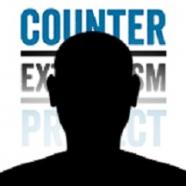Overview
Abu Omar al-Khorasani, also known as Zia ul-Haq, is an Afghan militant and reportedly ISIS’s leader in South Asia. He is a former leader of the terror group’s Khorasan Province (ISIS-K). Khorasani was arrested in Afghanistan in May 2020.“Afghanistan arrests regional Islamic State leader,” Reuters, May 11, 2020, https://www.reuters.com/article/us-afghanistan-islamicstate/afghanistan-arrests-regional-islamic-state-leader-idUSKBN22N1XQ?il=0.
Jihadists in Afghanistan and Pakistan pledged allegiance to ISIS in November 2014. ISIS accepted the pledge in January 2015, officially forming Wilayat Khorasan under the leadership of former Pakistani Taliban commander Hafiz Said Khan.“Islamic State moves in on al-Qaeda turf,” BBC News, June 25, 2015, http://www.bbc.com/news/world-31064300. Khorasani initially acted a spokesperson for the group, giving statements to news media on ISIS’s activities as well as commentary on the 2016 U.S. presidential elections. Khorasani described former U.S. President Barack Obama as moderate infidel with at least a little brain compared with U.S. President Donald Trump, a “complete maniac” whose hatred of Muslims would boost ISIS recruitment.Ahmad Sultan, “Islamic State say they have captured Afghanistan’s Tora Bora caves,” Reuters, June 15, 2017, https://www.reuters.com/article/us-afghanistan-islamic-state/islamic-state-say-they-have-captured-afghanistans-tora-bora-caves-idUSKBN1960Z6; Ahmad Sultan and Omar Fahmy, “Jihadists say Trump victory a rallying call for new recruits,” Reuters, November 14, 2016, https://www.reuters.com/article/us-usa-trump-jihadists/jihadists-say-trump-victory-a-rallying-call-for-new-recruits-idUSKBN1390FO.
ISIS-K’s leadership council appointed Khorasani the group’s fourth emir following the July 14, 2018, death of the group’s previous leader, Abu Sa’id Bajauri.“Letter dated 15 January 2019 from the Chair of the Security Council Committee pursuant to resolutions 1267 (1999), 1989 (2011) and 2253 (2015) concerning Islamic State in Iraq and the Levant (Da’esh), Al-Qaida and associated individuals, groups, undertakings and entities addressed to the President of the Security Council,” United Nations, January 15, 2019, https://www.un.org/sc/ctc/wp-content/uploads/2019/02/N1846950_EN.pdf. According to a January 2019 report to the U.N. Security Council, ISIS-K maintained close relations with ISIS core in Syria and Iraq.“Letter dated 15 January 2019 from the Chair of the Security Council Committee pursuant to resolutions 1267 (1999), 1989 (2011) and 2253 (2015) concerning Islamic State in Iraq and the Levant (Da’esh), Al-Qaida and associated individuals, groups, undertakings and entities addressed to the President of the Security Council,” United Nations, January 15, 2019, https://www.un.org/sc/ctc/wp-content/uploads/2019/02/N1846950_EN.pdf. In April 2019, an ISIS core delegation demoted Khorasani during a visit to ISIS-K. According to a U.N. investigation, Khorasani was replaced because of his “poor performance” related to ISIS’s “setbacks” in Afghanistan’s Nanghahar province in the second half of 2018.“Letter dated 15 July 2019 from the Chair of the Security Council Committee pursuant to resolutions 1267 (1999), 1989 (2011) and 2253 (2015) concerning Islamic State in Iraq and the Levant (Da’esh), Al-Qaida and associated individuals, groups, undertakings and entities addressed to the President of the Security Council,” United Nations, July 15, 2019, https://undocs.org/S/2019/570. Khorasani was replaced by Mawlawi Abdullah, a.k.a. Mawlawi Aslam Farooqi, who was previously in charge of operations in the Khyber Agency.“Letter dated 15 July 2019 from the Chair of the Security Council Committee pursuant to resolutions 1267 (1999), 1989 (2011) and 2253 (2015) concerning Islamic State in Iraq and the Levant (Da’esh), Al-Qaida and associated individuals, groups, undertakings and entities addressed to the President of the Security Council,” United Nations, July 15, 2019, https://undocs.org/S/2019/570. ISIS restructured the Khorasan Province in May 2019 when it announced the creation of separate Pakistani and Indian provinces.Ayaz Gul, “Islamic State Announces ‘Pakistan Province,’” Voice of America, May 15, 2019, https://www.voanews.com/south-central-asia/islamic-state-announces-pakistan-province. The United States designated ISIS-K in January 2016.“Foreign Terrorist Organization Designation of ISIL – Khorasan (ISIL-K),” U.S. Department of State, January 14, 2016, https://2009-2017.state.gov/r/pa/prs/ps/2016/01/251237.htm. The U.N. Security Council designated the ISIS-K in May 2019.“The Islamic State of Iraq and the Levant - Khorasan (ISIL - K),” United Nations, May 14, 2019, https://www.un.org/securitycouncil/content/islamic-state-iraq-and-levant-khorasan-isil-k.
Afghan forces arrested Farooqi in April 2020 in Afghanistan’s Kandahar province.“‘Key’ Daesh Leaders Arrested in Kabul: NDS,” TOLO News, May 11, 2020, https://tolonews.com/afghanistan/key-daesh-leaders-arrested-kabul-nds. On May 11, 2020, Afghanistan’s General Directorate of National Security (NDS) and Interior Ministry announced that Khorasani had been arrested in Kabul. The NDS referred to Khorasani as ISIS’s leader in South Asia, though it is unclear when he rose to that position after his 2019 demotion. Khorasani was arrested alongside ISIS South Asia’s public relations officer and intelligence chief.“Afghanistan arrests regional Islamic State leader,” Reuters, May 11, 2020, https://www.reuters.com/article/us-afghanistan-islamicstate/afghanistan-arrests-regional-islamic-state-leader-idUSKBN22N1XQ?il=0.
Associated Groups
- Extremist entity
- ISIS
- Read Threat Report
- Type(s) of Organization:
- Insurgent, territory-controlling, religious, terrorist, violent
- Ideologies and Affiliations:
- Islamist, jihadist, pan-Islamist, Salafist, takfiri
- Position(s):
- Leader of ISIS in South Asia
ISIS is a violent jihadist group based in Iraq and Syria. The group has declared wilayas (provinces) in Egypt, Libya, Algeria, Yemen, Saudi Arabia, Nigeria, Afghanistan, Pakistan, and the North Caucasus. ISIS has also waged attacks in Turkey, Lebanon, France, Belgium, Iraq, Bangladesh, Indonesia, Malaysia, Tunisia, and Kuwait.
